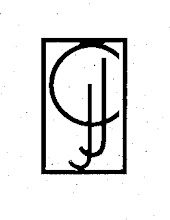 Contrary to what you might think about proofreaders and editors, we don’t LOOK for mistakes when we’re not working. Mistakes seem to gravitate toward us.
Contrary to what you might think about proofreaders and editors, we don’t LOOK for mistakes when we’re not working. Mistakes seem to gravitate toward us.A moment ago the word priviege spoiled my morning reading of a deftly written essay. A week ago there was a typo in my fortune cookie. (Does that render the prophecy null and void?) Ten pages into Stanley Fish’s How to Write A Sentence is a word that should have been singular but made its way into print as a plural. A job application asked if I was persuing a degree.
Oh, I could spend days listing the typos I’ve read this year alone—on menus, signs, press releases, news reports, television graphics, ads—but I’d prefer to forget them. I cringe when I see them, though there are a few of my ilk who delight in the mistakes of others—enjoy playing a game of “Gotcha!” with all printed materials. I’m more forgiving and feel bad for both the writer and the proofreader/editor when typos pop out. Do you understand how disruptive typos are to me? How they mar my pleasure and interest when reading?
There’s one exception. The other day, I was at my computer when an ad cried out for my attention. Typically, I ignore online ads, but this one made me laugh (after I recovered from my initial shock). In big, bold, uppercase letters it read:
INTROUDING the Must-Grab Flavors
of Mock-Tail Season
New _______ Mocktails
of Mock-Tail Season
New _______ Mocktails
In addition to the butchered first word of the teaser, the company couldn’t decide* how to spell mocktail for their new product. (New products generally mean newly coined words and require corporate editors to create new rules for their style guides. Marketing campaigns th
 at bypass the editor are often strewn with inconsistencies like mock-tail and mocktail.) Or maybe the joke’s on me and I’m just not fluent in Mock English (or mock English, or mock-English, or Mock-English).
at bypass the editor are often strewn with inconsistencies like mock-tail and mocktail.) Or maybe the joke’s on me and I’m just not fluent in Mock English (or mock English, or mock-English, or Mock-English).When I’m working, I stalk typos. When I’m not, they stalk me. This is the curse of my profession. Oh woh iz mee.
* Arguably, perhaps the editor chose to hyphenate the word when used as an adjective and close it when used as a noun. However, that’s an odd choice in this era of dehyphenation.
[Photo from I Can Has Cheezburger; proofreader’s marks by Eve Corbel.]



No comments:
Post a Comment